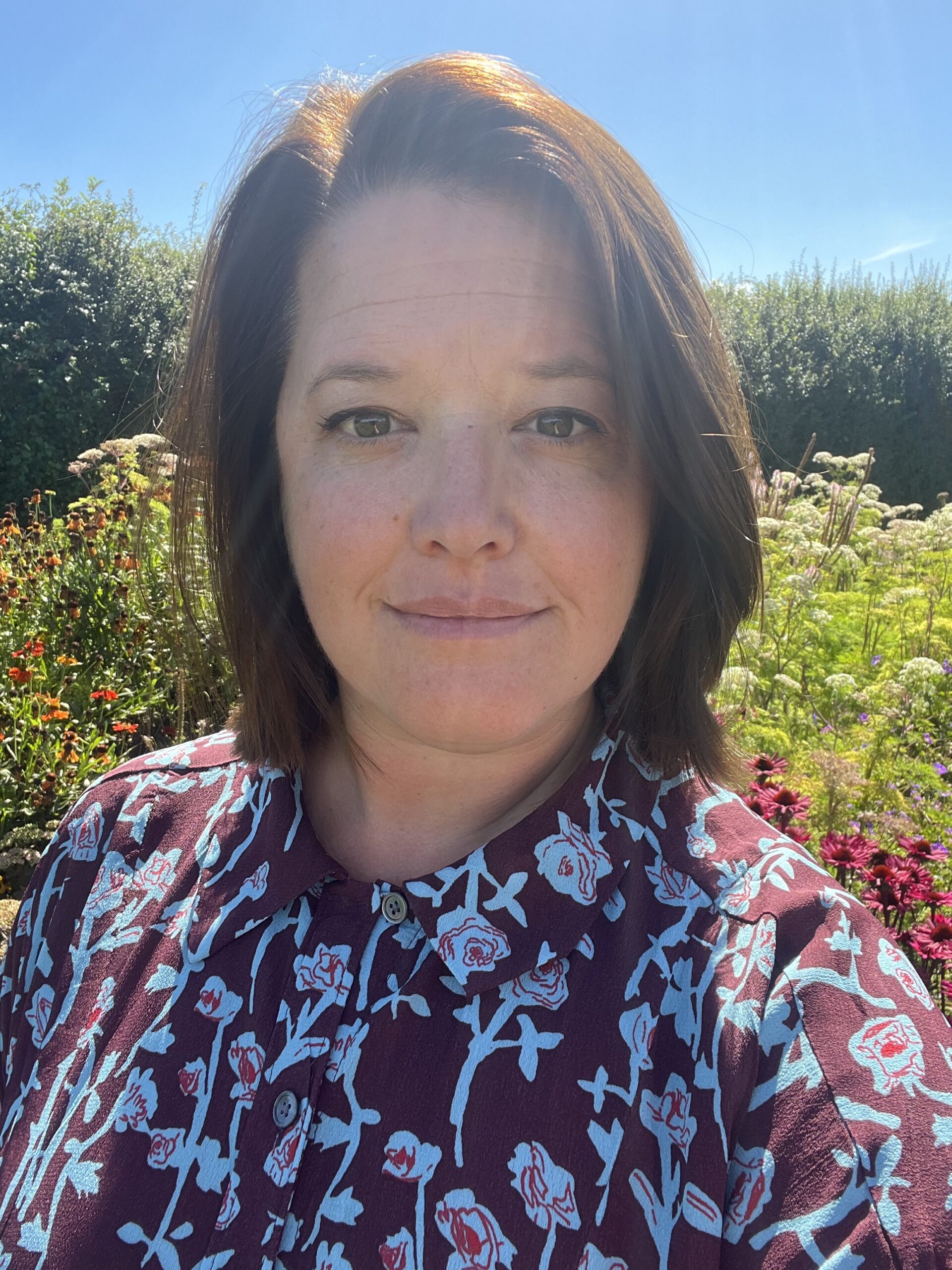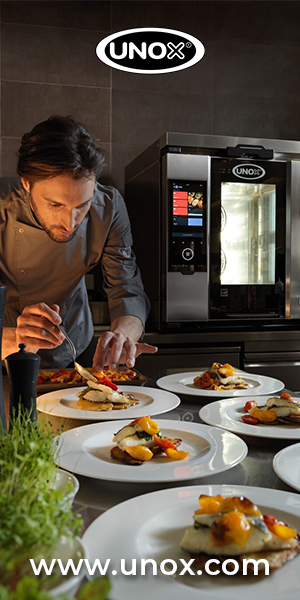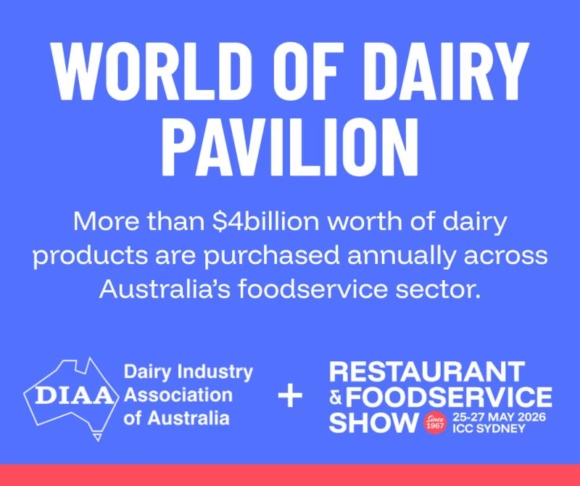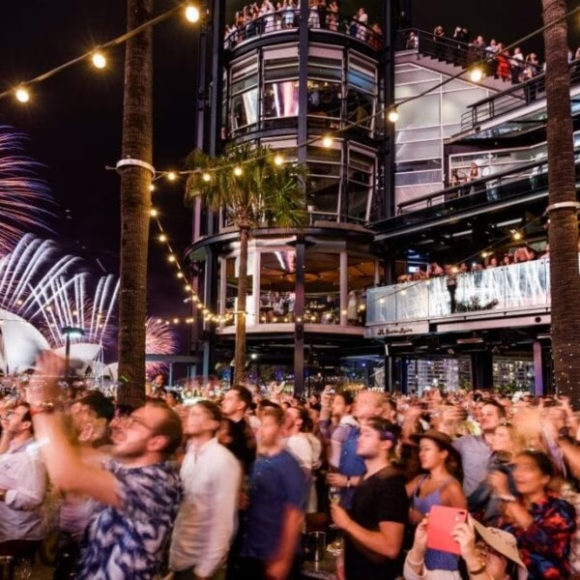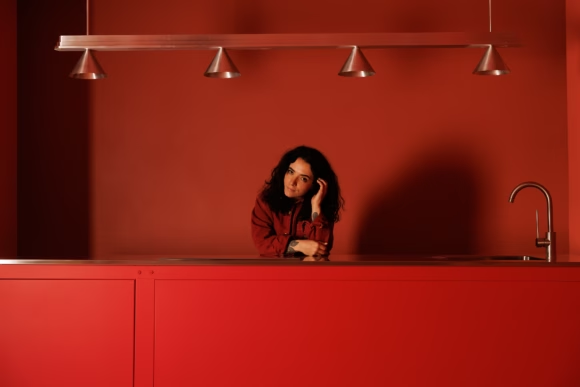The RB Big Interview series brings you in-depth conversations with the industry’s most influential leaders, innovators, and visionaries who are shaping Australia’s restaurant and hospitality landscape.
Juliane Caillouette-Noble has been at the forefront of sustainable hospitality for nearly a decade. As Managing Director of The Sustainable Restaurant Association (SRA), she’s led the organisation’s transformation from a UK-focused membership body into a global framework that helps restaurants worldwide navigate sustainability challenges.
With a background in food systems transformation, Noble worked with Jamie Oliver’s school food programs before joining The SRA in 2016. She spoke to Restaurant Business about the organisation’s evolution, Australia’s potential, and why sustainability isn’t a line item—it’s a lens.
Tell us about your background and how you ended up in hospitality…
My background was actually in education and education policy, and I was going to go into teaching. Towards the end of my time at university, I was looking at urban education systems and I became very obsessed with the idea that regardless of what sort of academic intervention you might make, if children are not well fed, and if children are coming to school hungry, if we’re feeding children rubbish at school, there’s very little impact. You’re just speaking around the edges when you’re modifying the curriculum.
I saw what Jamie Oliver was doing with school dinners in the UK, and it resonated so much with me – this idea of transformation that comes from a place of loving good food. I always found Jamie such a compelling character because he’s not campaigning about nutrition from a nutrients perspective. He’s campaigning about food systems transformation from a perspective of loving food and creating something beautiful together.
That led to a post-grad certification in nutrition and ultimately a passionate desire to work for Jamie. I was living in New York at the time, and I had this idea that I wanted to go to London because the school system in England is so much more manageable than trying to impact the school system in the US. We don’t have a nationalised education policy in the US, so trying to transform school lunch is very much a local, county-by-county job. In the UK, you can really create transformation on a bigger scale.
I ended up working for Jamie for about five years, running his school food programs and food education—a combination of the policy and campaigning side, and developing teaching resources, recipes, and lesson plans for cooking and growing in primary schools through the Kitchen Garden Project.
How did that lead you to The Sustainable Restaurant Association?
Through that work, I got to know Henry Dimbleby quite well, because of the overlap – Henry having founded Leon, being involved in The SRA’s origins, and also having published the school food plan. What became really interesting to me was this broader need for food systems transformation, and the idea that chefs are incredibly powerful advocates for that.
If you think about the Ottolenghi effect – he’s got some restaurants, writes some cookbooks, and the knock-on effect is that ingredients like tahini and za’atar go from being hugely obscure to being ingredients you can buy at the supermarket. You realise there’s this wider knock-on effect that chefs have on creating change that’s so needed in the food system.
When I left Jamie – this was when Jamie’s 15 was closing, the foundation was closing – I looked at The SRA as a vehicle for taking ideas like that, but on a variety of subject matter. Not just food education, but thinking about the dietary shift that needs to happen, the impact on farming, all these different issues.
I joined The SRA in 2016, just after the organisation’s fifth birthday, and became Managing Director in January 2021. This period has been all about the transition to a more global approach and the relaunch.
Can you explain what The Sustainable Restaurant Association is and why it was founded?
You have to rewind to that pre-2010 moment and what the food system looked like. There was this early 2000s energy for corporate social responsibility growing in the corporate sector, and the rise of labelling schemes – lots of think pieces around the growth of organics in supermarkets, markers like fair trade and the Marine Stewardship Council starting to gain popularity.
Our founders – Giles Gibbons and Simon Hepner from the consulting space, and Henry Dimbleby and Mark Sainsbury from foodservice businesses – were discussing how there were all these issues in food that you were starting to see manifest in the retail sector. Yet, nobody was helping restaurants make sense of them. Restaurants were actually the intersection of all these issues – whether that’s procurement, labour, or food waste – but it was really hard for restaurants to make sense of the sustainability ecosystem.
The SRA’s origin was to be a space to lay out what sustainability looks like in restaurants, what you should care about, and how to make it easier for restaurants to access good information. Ultimately, how do we make it easier for diners to know they’re making good choices when dining out?
How has the organisation evolved?
We were established as a membership organisation and started with 50 founding members. Around 2014-2015, we saw bigger high street restaurants starting to take notice, working with businesses like Nando’s and recognising that these frameworks were important at scale, not just for single-site independents.
Fast forward to the run-up to COVID, and we were already wondering whether a membership organisation was the proper formation. We’d started growing an organic international reputation, partly through partnerships like working with The World’s 50 Best to introduce a Sustainability Award that required an audit and assessment.
Then COVID happened, and it answered our questions for us. The hospitality industry shut down worldwide, and we paused all membership fees. Yet we were getting more phone calls than ever for actual sustainability advice. People were closed but trying to design build-back-better schemes, doing delivery for the first time, and asking about packaging choices.
It highlighted how valuable it is to learn from other parts of the world. Asia was showing restaurants how to operate within social distancing frameworks before that legislation came into play in the UK. We realised our fundamental value proposition is to be a framework, an assessment, and an action plan on sustainability, and to be a hub of information sharing and best practices from around the world.
What does the new global approach look like?
We used that time during COVID to interrogate our framework—was it fit for purpose? Can it be used elsewhere? That was 12-18 months of consultation and review with third-party organisations, culminating in our relaunch in 2023 as a global organisation.
We can now confidently say our tool is unlike anything else. There are certification programs for hotels and retail, but nobody is looking at the complexity of restaurants the way we are. There’s a real appetite for that around the world.
I constantly remind people that sustainability in restaurants is 1,000 decisions made by 50 people every day for an entire year. Unlike corporate responsibility, where you can have boardroom-level conversations that trickle down, this industry is very people-heavy. You have to help restaurants understand what those little things are – how your average front-of-house, KP, or chef understands their role in that ecosystem.

How long had Australia been on the radar of The Sustainable Restaurant Association, and why did the organisation decide to launch here?
Australia has been on our radar since our inception because of the crossover between hospitality sectors in London and major cities like Melbourne and Sydney. So many people go back and forth between the industries.
Our original connection started with Brae. They were the first Australian restaurant to complete a Food Made Good sustainability assessment through the 50 Best scheme. When they did it, they were extremely vocal about how no one had ever asked them questions like that, which made them think differently. They were the first to come back to us as we internationalised the framework.
A standard like ours makes so much sense in the Australian environment, given the strong hospitality culture and genuine passion for healthy, sustainable diets. But we didn’t want to come from a perspective of the English coming to tell you what to do. For us, it felt really important to ground it in partnership with organisations in Australia, which led us to Innavi.
I approach every new territory with the sense that we have something to add and a global perspective to share, but we also come with humility about the deep level of expertise in local organisations. Our goal is to unify them, connect with them, and invigorate their work.
What are the three main pillars of the Food Made Good standard during audits and assessments?
The number one starting point on Sourcing is traceability. Do you know what you’re buying and where it comes from? We break that down by the ingredients you’re procuring the most of – do you have traceability to the country of origin, region, or the actual farm? Do you understand the basics and have standards in place that are environmentally and socially positive?
The other key pieces are ‘more plants, better meat’ – what are you doing to increase the diversity of ingredients and ensure the meat you serve follows a less-but-better approach? We also look at sourcing sustainable seafood.
Society is all about community – the community within your restaurant (your staff and employees) and your impact on the broader community. How are you making sure you have a positive effect on both? What actions are you taking? This can look like charity partnerships, local employment, and opportunities for young people.
Environment is your operational environmental impact – energy, water, waste. Fundamentally, how are you valuing the resources we have and making sure your business is efficient and treating those resources with respect and in some cases restraint?
What are the biggest misconceptions that restaurant operators have about sustainability?
The number one thing is related to cost – that being sustainable needs to be more expensive. We fundamentally believe that any restaurant, of any type, can aspire to do better for both people and the planet. This isn’t something only for the incredibly aspirational farm-to-table restaurant.
When you view sustainability as its own line item, it’s always going to feel like something on your to-do list that’s going to take your energy, money, and time. There’s a reframing that needs to happen – sustainability isn’t a line item on its own. Sustainability is the lens, the pair of glasses you put on to tackle the items on your to-do list.
If you start thinking about it as the way you make decisions, it’s going to have a positive impact on your staffing, your people, those day-to-day urgent things, because it’s tangible in all the decisions you’re making.
How can restaurants get involved with The Sustainable Restaurant Association and use your organisation for help?
We have a lot of free content available. Check out our Instagram @FoodMadeGood, our website, and sign up for our newsletter. Then get involved with the first assessment.
Working through the Food Made Good standard isn’t just for businesses that know they’ll excel. It’s really important for businesses that are only just starting their journey. We don’t come with judgment on the industry – we’re trying to invite everyone into this journey of being better.
Have a conversation with us, tell us about your business, sign up for the standard online, or reach out to our team. Start asking these questions internally: Do we know these things about ourselves? These are really good questions from a basic ‘how to build a resilient business’ perspective, not just sustainability.
The Sustainable Restaurant Association’s Food Made Good standard is now available in Australia. Learn more about Food Made Good at www.thesra.org or www.innavi.com.au.
To stay up to date on the latest events, news, industry insights and sustainability advice, follow The SRA on Instagram and LinkedIn and sign up to their newsletter.

